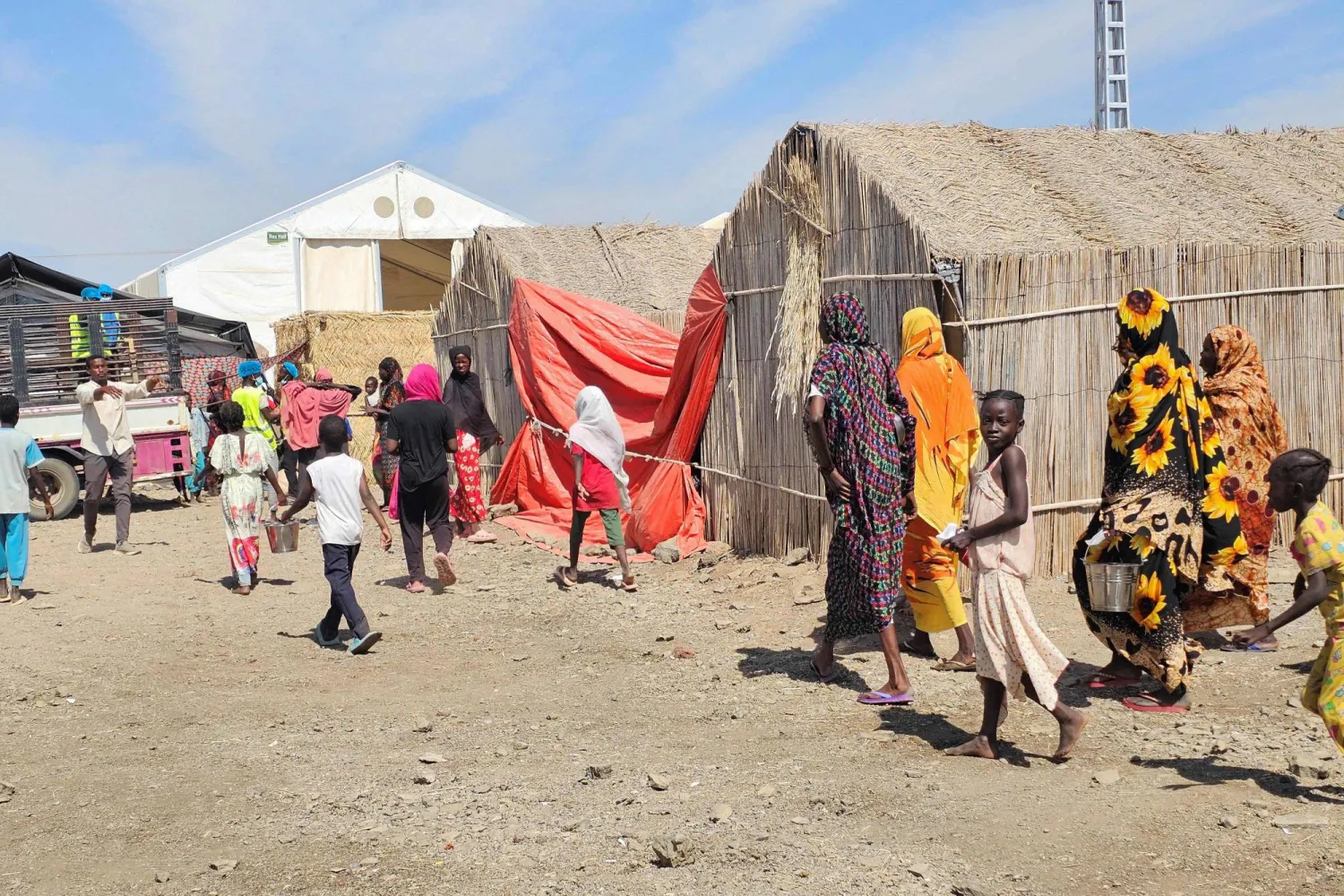Opposition fighters breached Syria’s second-largest city Aleppo after blowing up two car bombs on Friday and were clashing with government forces on the city's western edge, according to a Syria war monitor and combatants.
It was the first time the city has been attacked by opposition forces since 2016, when they were ousted from Aleppo's eastern neighborhoods following a grueling military campaign in which Syrian government forces were backed by Russia, Iran and its allied groups.
Witnesses in Aleppo city said residents have been fleeing neighborhoods on the western edge of the city because of missiles and exchanges of fire. The government did not comment on the fighters breaching city limits.
Syria's Armed Forces said in a statement Friday it has been clashing with fighters in the countryside around Aleppo and Idlib, destroying several of their drones and heavy weapons. It vowed to repel the attack and accused the fighters of spreading false information about their advances.
Thousands of fighters have been advancing toward Aleppo city since a shock offensive they launched on Wednesday, seizing several towns and villages along the way.
The offensive came as Iran-linked groups, who had backed Syrian government forces since 2015, have been preoccupied with their own battle at home.
The Syrian Observatory for Human Rights, a war monitor, said the fighters blew up two car bombs at the city’s western edge on Friday.
An opposition faction commander issued a recorded message posted on social media calling on the city's residents to cooperate with the advancing forces.
Türkiye state-run Anadolu Agency reported that the opposition forces entered Aleppo city center Friday. It said the fighters “broke through the defense lines of the regime forces along the Hamdaniyya, New Aleppo, and Zahra axis on the outskirts of the city.”
It added the fighters now control approximately 70 locations in Aleppo and Idlib provinces.
Syria’s state media reported earlier Friday that projectiles from fighters landed in the student accommodations at Aleppo's university in the city center, killing four people, including two students. Public transportation to the city had also been diverted from the main highway linking Aleppo to the capital Damascus to avoid clashes, the report said.
Fighters also advanced on the town of Saraqab, in northwestern Idlib province, a strategic area that would secure supply lines to Aleppo.
This week's advances were one of the largest by opposition factions, led by Hayat Tahrir al-Sham, or HTS, and comes after weeks of low simmering violence. It is most intense fighting in northwestern Syria since 2020, when government forces seized areas previously controlled by opposition fighters.
Syria’s Armed Forces said the fighters are violating a 2019 agreement that de-escalated fighting in the area, which has been the last remaining opposition stronghold for years.
The war monitor Observatory said dozens of fighters from both sides have been killed in the battles that started Wednesday. The opposition fighters have seized control of more than 50 villages in their advance, which seem to have caught the government forces unprepared.
Hezbollah, the lead group in an Iran-linked alliance that has backed Syria's government, has been locked in a war with Israel that escalated since September. A ceasefire was announced Wednesday, the day the Syrian opposition factions announced their offensive. Israel has also escalated its attacks against Hezbollah and Iran-linked targets in Syria during the last 70 days.
“Hezbollah was the main force in the government’s control of the city,” said Rami Abdurrahman, head of the Observatory.
The factions reported earlier Friday that fighters had wrested control of the Scientific Research Center neighborhood, about 4 kilometers (2.5 miles) from the western outskirts of Aleppo city. Government-linked media denied the fighters have seized it.
The Associated Press was not able to immediately verify the claims.
Fighters posted videos online showing they were using drones in their advance, a new weapon they had not had previously in the earlier stages of their confrontation with government forces. It was not clear to what extent the drones were used on the battleground.
The Anadolu Agency, reporting from Idlib, said the fighters attacked a military airbase southeast of Aleppo city with drones early Friday, destroying a helicopter. It said the opposition groups seized heavy weapons, depots and military vehicles belonging to the government forces during their advance.
Aid groups said the fighting has displaced thousands of families, and forced some services to be suspended. The opposition fighters said their offensive will allow the return of thousands of displaced people who were forced to flee government bombardment in recent weeks.
The 2016 battle for Aleppo was a turning point in the war between Syrian government forces and opposition fighters since the 2011 protests against Bashar Assad’s rule turned into an all-out war.
Russia and Iran and its allied groups had helped Syrian government forces reclaim control of all of Aleppo that year, after a grueling military campaign and a siege that lasted for weeks.
Türkiye has been a main backer of an array of opposition forces and its troops have established military presence in parts of northwestern Syria. Separately and largely in the east of Syria, the United States has supported Syrian Kurdish forces fighting ISIS militants.









